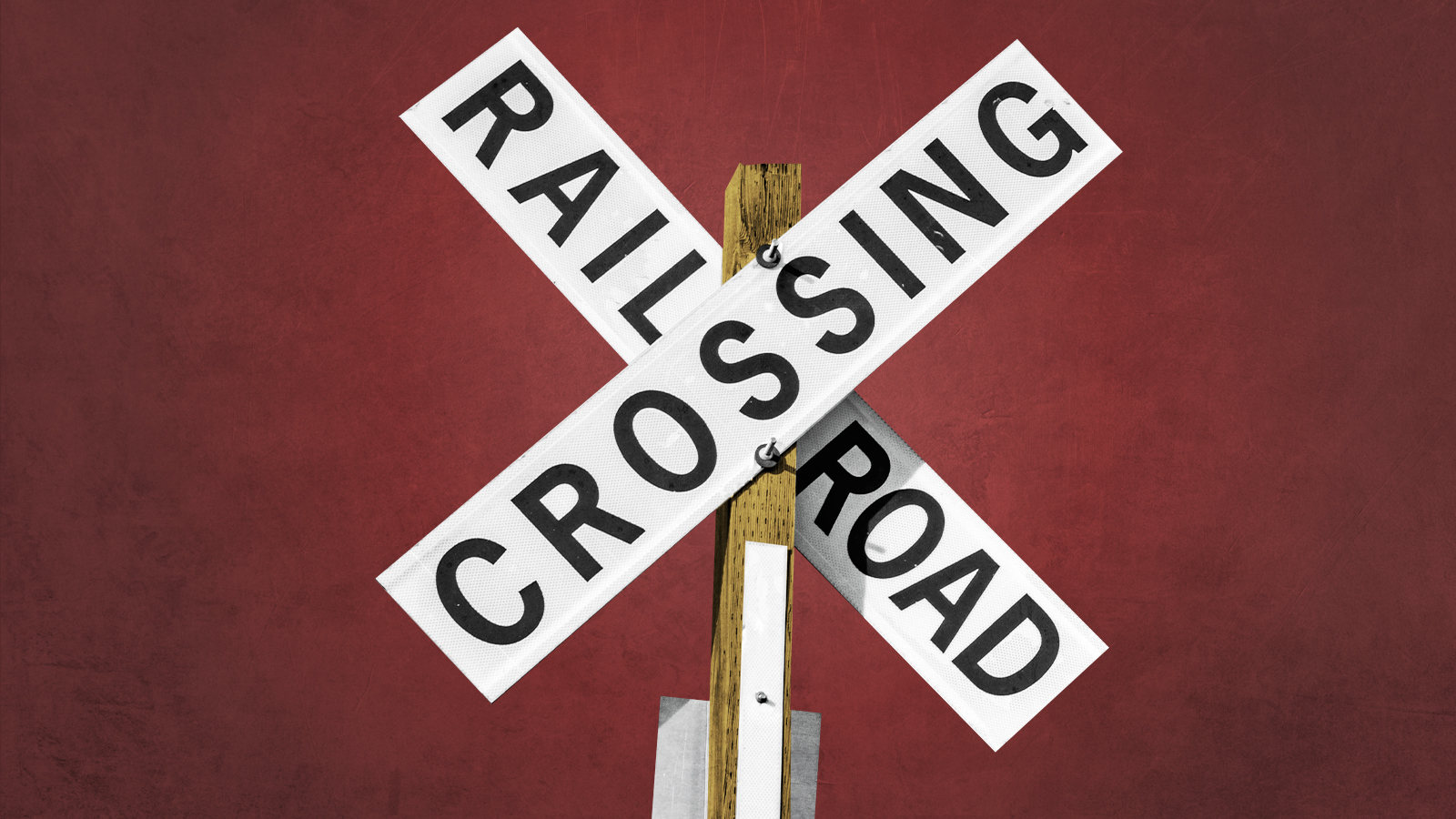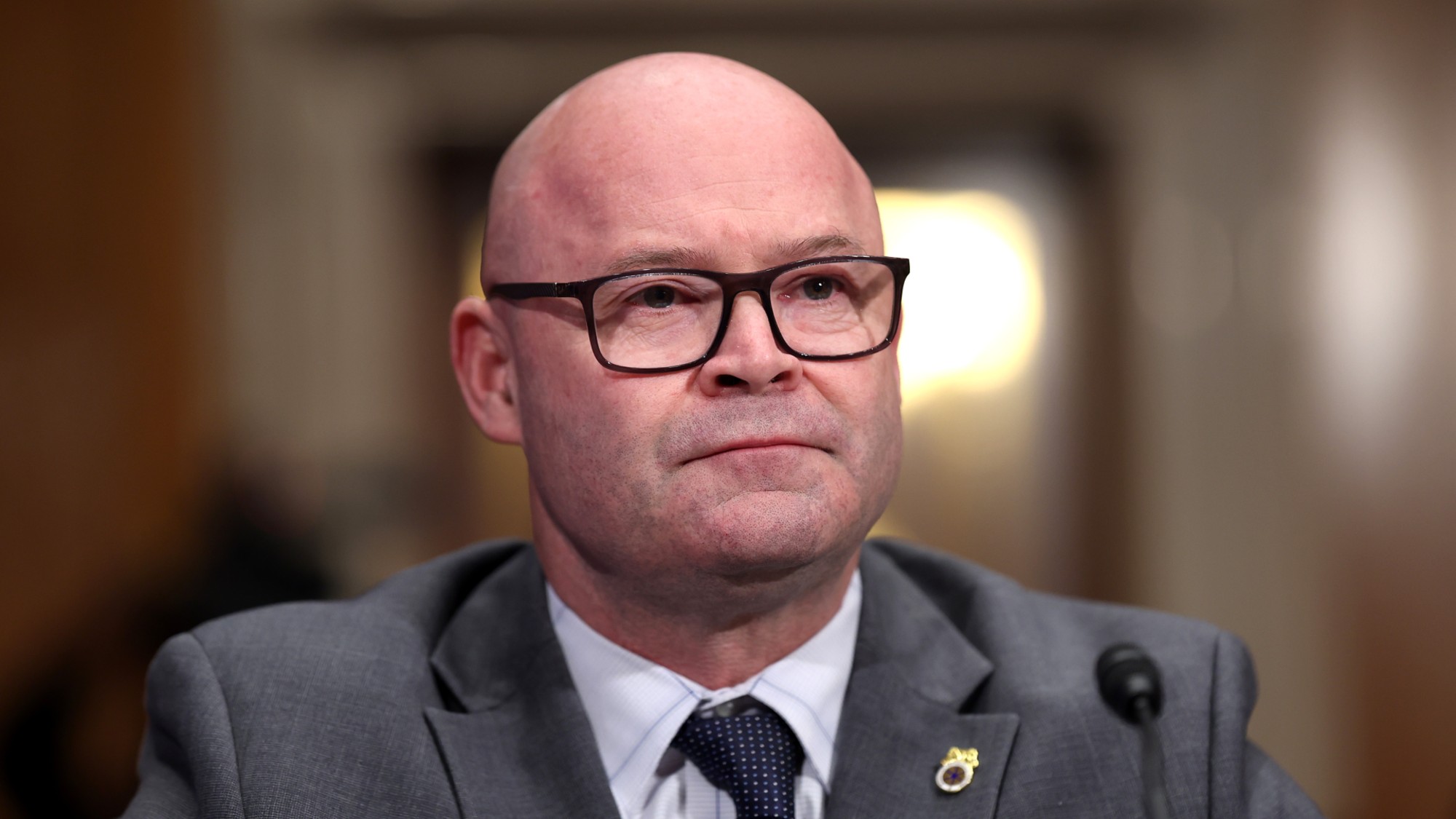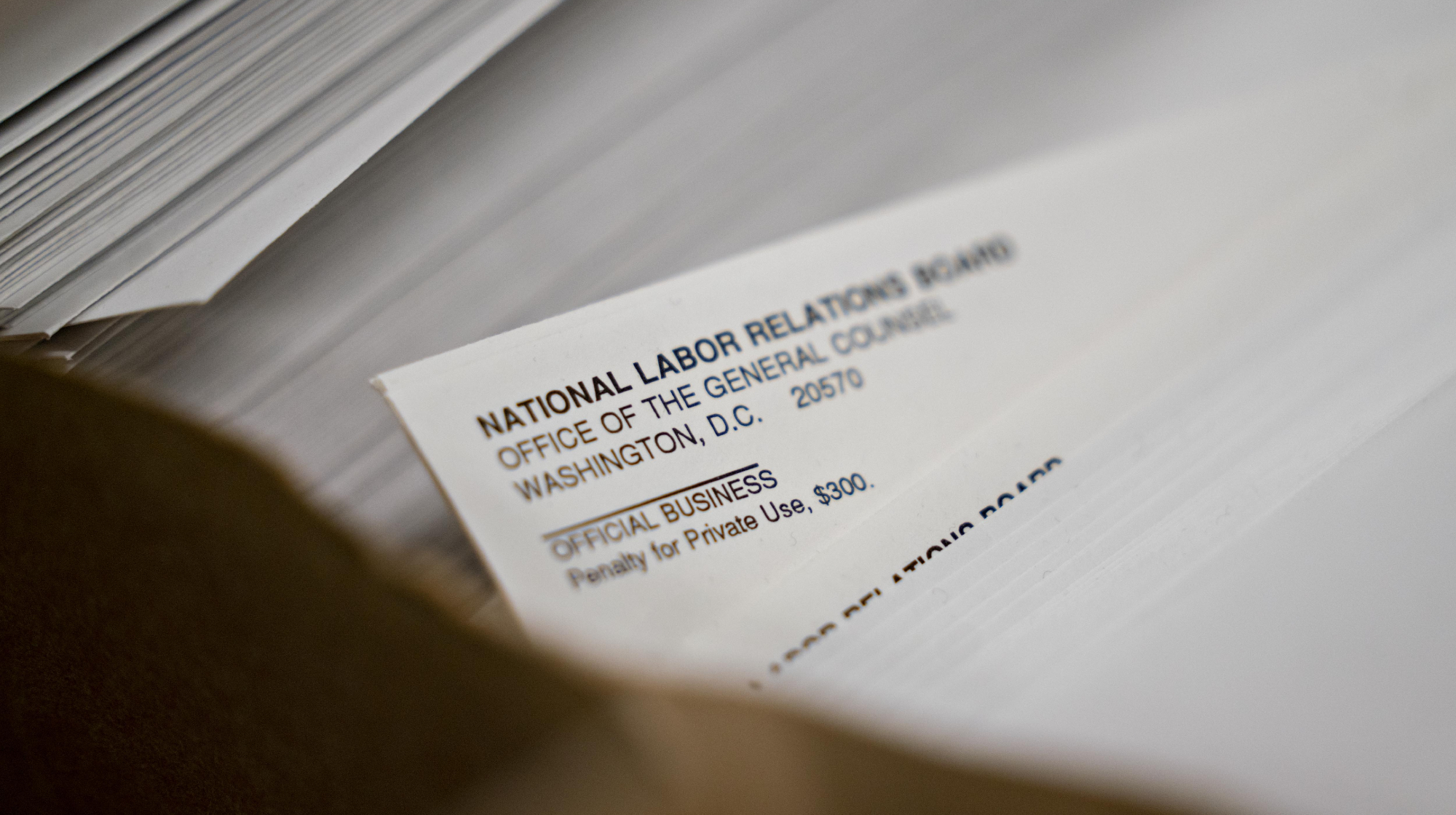The rail strike that wasn't
A last-minute deal saved the day


A free daily email with the biggest news stories of the day – and the best features from TheWeek.com
You are now subscribed
Your newsletter sign-up was successful
It was a tough week for the rail industry — but there's now a light at the end of the tunnel. Here's everything you need to know:
The latest:
Unions representing rail workers and freight rail companies reached a tentative deal Thursday morning, just barely avoiding a detrimental strike over pay and working conditions that could have gone into effect early Friday. Per The New York Times, the compromise now moves to "union members for a ratification vote, which is a standard procedure in labor talks." The current contract will remain in place until the vote is over — and that tally might take weeks, The Washington Post notes. Workers have agreed not to strike in the meantime.
Labor Secretary Marty Walsh brokered the discussions between the two parties, which "began Wednesday morning and lasted 20 hours," the Times reports. President Biden joined via phone around 9 p.m. on Wednesday. "The tentative agreement reached tonight is an important win for our economy and the American people," Biden said in a post-deal statement. "It is a win for tens of thousands of rail workers who worked tirelessly through the pandemic to ensure that America's families and communities got deliveries of what have kept us going during these difficult years."
The Week
Escape your echo chamber. Get the facts behind the news, plus analysis from multiple perspectives.

Sign up for The Week's Free Newsletters
From our morning news briefing to a weekly Good News Newsletter, get the best of The Week delivered directly to your inbox.
From our morning news briefing to a weekly Good News Newsletter, get the best of The Week delivered directly to your inbox.
The five-year deal, which is retroactive to 2020, "includes the 24 percent raises and $5,000 in bonuses that a Presidential Emergency Board recommended this summer," but also allows workers to take unpaid days off for doctors appointments without penalty — a change conductor and engineer unions had been pushing for, The Associated Press reports. "These rail workers will get better pay, improved working conditions, and peace of mind around their health care costs, all hard-earned," Biden continued. "The agreement is also a victory for railway companies who will be able to retain and recruit more workers for an industry that will continue to be part of the backbone of the American economy for decades to come."
Amtrak, meanwhile, said Thursday that it's working to restore service along its long-distance routes, which were preemptively canceled to avoid blowback from a potential walkout or lockout. The company was otherwise uninvolved in the dispute.
Back up — what happened here? What was the dispute?
An enormous rail worker strike could have taken effect in the U.S. on Friday unless freight railroad companies and workers' unions reached a long-sought agreement over pay and working conditions, The Washington Post reported. Though most of the unions were able to reach a tentative compromise with carriers before the federally-required "cooling off" period ended, two of the largest groups — the Brotherhood of Locomotive Engineers and Trainmen (BLET) and the SMART Transportation Division — were still negotiating as of Tuesday, leaving "about 60,000 workers ready to strike" if a deal didn't happen by the end of the week, added CNBC.
The deadlock was more specifically tied to "disagreements between management and labor over sick time and penalties for missing work," the Post wrote, noting the conflict presented quite the challenge for Biden "who aims to advocate for union workers but has prioritized untangling the nation's besieged infrastructure in the COVID era." Rail engineers and conductors typically make a decent living — around $100,000 a year, per NPR — but they were craving predictability and flexibility in their schedules, which can change rapidly and with little warning. Some of the largest rail carriers also utilize "points-based attendance policies that penalize workers, up to termination, for going to routine doctor's visits or attending to family emergencies," the Post continued. Meanwhile, conductors and engineers were complaining about how they are at times on call for "14 consecutive days without a break and that they do not receive a single sick day, paid or unpaid."
A free daily email with the biggest news stories of the day – and the best features from TheWeek.com
"The average American would not know that we get fired for going to the doctor," Dennis Pierce, BLET president, told the Post prior to news of the Thursday deal. "This one thing has our members most enraged. We have guys who were punished for taking time off for a heart attack and COVID. It's inhumane."
How did this affect passenger trains, if at all?
Amtrak canceled three of its long-distance routes in preparation for a potential strike. Though the company was not involved directly in the union negotiations, many of its 300-some daily trains operate on freight rails that would have been impacted by a walkout, The Hill wrote. Specifically, Amtrak shut down Southwest Chief routes running between Chicago and Los Angeles; Empire Builder routes from Chicago to Seattle; and California Zephyr routes that travel from Chicago to San Francisco. Northeastern routes — such as those running through Boston, New York, and Washington, D.C. — "do not operate on freight rails" and weren't expected to be impacted, added The Hill.
Even with those adjustments, however, Amtrak had warned that further service disruptions could have followed depending on the trajectory of negotiations. "If a strike isn't averted," the Post had noted, "commuter lines that run between major cities and suburbs could be affected since those routes often operate on freight tracks, which would not be available to passenger trains."
Given news of the tentative agreement, Amtrak said Thursday it was working to restore service along the canceled routes. "This tentative agreement will keep our trains moving, stations bustling, and employees proudly serving customers as we move them across this great country," Amtrak CEO Stephen Gardner wrote in a subsequent statement, per the Post.
Would a strike have affected the economy?
Absolutely.
On a high level, a strike would have burdened retailers who rely on freight rails to distribute and transport inventory, ultimately causing "a domino effect" — retailers would have missed "their shipping and pickup dates, leaving cargo in limbo without a place to go," the Post summarized, per supply chain professional Jonathan Gold.
More specifically, however, a walkout or lockout could have affected everything from energy to food supplies to consumer goods, added CNN. If oil refineries weren't able to access freight rails, they may have found it difficult to maintain gasoline production, in turn raising prices at the pump. Farmers may have had difficulty relocating their crops to food processors, while simultaneously struggling to get their hands on much-needed fertilizer. A strike could have even thrown a damper on the holiday shopping season, which might have encountered "shortages and higher prices" if the walkout had negatively affected imports.
"The potential here could be significant on the economy, especially for everybody who's relying on the rails for both imports and exports," Gold told the Post before a deal was reached. The Association of American Railroads had also recently estimated that a strike could cost the U.S. more than $2 billion a day — though Anderson Economic Group's Patrick Anderson told CNN that projection is a "gross exaggeration."
What was the government doing about this?
Prior to the Thursday agreement, the Biden administration had concocted contingency plans to ensure "critical goods" were delivered even in the event of a strike, Reuters reported.
"We are working with other modes of transportation including shippers, truckers, and air freight to see how they can step in and keep goods moving in case of this rail shutdown," White House Press Secretary Karine Jean-Pierre said during a Tuesday press briefing. "The administration has also been working with relevant agencies to assess what supply chains and commodities are most likely to face severe disruptions."
The Labor Department and President Biden had also been in contact with the unions and rail companies, and was helping mediate negotiations, CNBC writes, per Jean-Pierre. "We have made crystal clear to the interested parties the harm that American families, businesses, farmers, and communities would experience if they were not to reach a resolution," she said.
Update 2:00 p.m. ET, Sept. 16, 2022: This story has been updated throughout to reflect the tentative deal reached between freight rail companies and unions representing rail workers.
Brigid Kennedy worked at The Week from 2021 to 2023 as a staff writer, junior editor and then story editor, with an interest in U.S. politics, the economy and the music industry.
-
 The Olympic timekeepers keeping the Games on track
The Olympic timekeepers keeping the Games on trackUnder the Radar Swiss watchmaking giant Omega has been at the finish line of every Olympic Games for nearly 100 years
-
 Will increasing tensions with Iran boil over into war?
Will increasing tensions with Iran boil over into war?Today’s Big Question President Donald Trump has recently been threatening the country
-
 Corruption: The spy sheikh and the president
Corruption: The spy sheikh and the presidentFeature Trump is at the center of another scandal
-
 ‘The surest way to shorten our lives even more is to scare us about sleep’
‘The surest way to shorten our lives even more is to scare us about sleep’Instant Opinion Opinion, comment and editorials of the day
-
 The billionaires’ wealth tax: a catastrophe for California?
The billionaires’ wealth tax: a catastrophe for California?Talking Point Peter Thiel and Larry Page preparing to change state residency
-
 Bari Weiss’ ‘60 Minutes’ scandal is about more than one report
Bari Weiss’ ‘60 Minutes’ scandal is about more than one reportIN THE SPOTLIGHT By blocking an approved segment on a controversial prison holding US deportees in El Salvador, the editor-in-chief of CBS News has become the main story
-
 Has Zohran Mamdani shown the Democrats how to win again?
Has Zohran Mamdani shown the Democrats how to win again?Today’s Big Question New York City mayoral election touted as victory for left-wing populists but moderate centrist wins elsewhere present more complex path for Democratic Party
-
 ‘Businesses that lose money and are uncompetitive won’t survive’
‘Businesses that lose money and are uncompetitive won’t survive’Instant Opinion Opinion, comment and editorials of the day
-
 Millions turn out for anti-Trump ‘No Kings’ rallies
Millions turn out for anti-Trump ‘No Kings’ ralliesSpeed Read An estimated 7 million people participated, 2 million more than at the first ‘No Kings’ protest in June
-
 ‘Gen Z men are facing a surprise workforce crisis’
‘Gen Z men are facing a surprise workforce crisis’Instant Opinion Opinion, comment and editorials of the day
-
 Court says labor board's structure unconstitutional
Court says labor board's structure unconstitutionalSpeed Read The ruling has broad implications for labor rights enforcement in Texas, Louisiana and Mississippi
